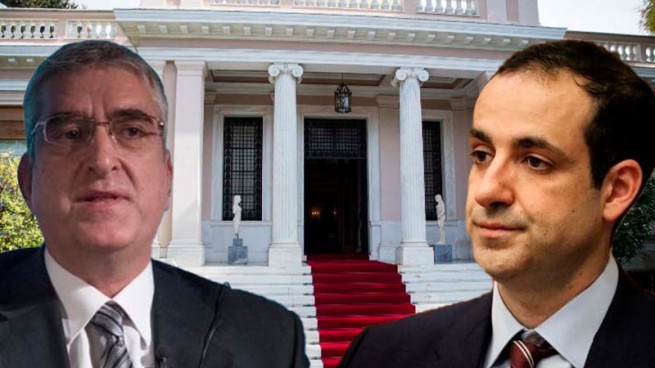Nearly 30 years ago, the Greek Parliament voted to bring to justice Constantine Mitsotakisa former prime minister, for his alleged involvement in a wiretapping scheme for political opponents and journalists.
The case died down after the ruling socialist party, PASOK, in a burst of generosity or out of political self-interest, said the charges should be dropped, writes Tony Barber, columnist Financial Times.
Now Kyriakos Mitsotakis, son of an ex-premier and prime minister since 2019, was at the center of a similar wiretapping scandal. Time will tell if this leads to litigation. In the meantime, many unanswered questions hang like clouds over the Mitsotakis government.
This is important because the image of Greece underwent a surprising and largely justified transformation after the crisis of the 2010s. It once seemed that the country’s debt problems could lead to a catastrophic default and exit from EUthat would jeopardize the eurozone, Europe’s monetary union. Politics has become highly polarized since the election in 2015 of the leftist SYRIZA party, which formed the most radical left-wing government in a European democracy since World War II.
Slowly but surely the situation changed for the better. Under the control of the tamed (Brussels) SYRIZA and then Mitsotakis’s New Democracy party, Greece was so successful in fulfilling the conditions of its creditors that the EU in August announced the end of “heightened surveillance” of the country’s fiscal and economic policies.
Greece has also become a valuable partner (USA) in solving regional problems. The settlement with the newly named North Macedonia put an end to one of the most intractable diplomatic disputes in the Balkans. The EU is showering Greece with praise for its role in deterring unwanted migrants. Athens has been a staunch NATO ally in supporting Ukraine since the Russian invasion in February.
Unfortunately, the wiretapping scandal shows that not everything is going smoothly in the politics and governance of post-crisis Greece. After taking office, Mitsotakis brought under his control EYP, the national intelligence service, and appointed Panagiotis Kontoleon, former head of the Greek branch of a British private security company (and concurrent MI6 employee), to lead it. Contoleon resigned in August after EYP admitted to tapping the phone of Pasok leader Nikos Androulakis.
Resigned next. Grigoris Dimitriadis, the prime minister’s general secretary who exercised political oversight of the EYP. Dimitriadis is the nephew of Kyriakos Mitsotakis. On Monday, the prime minister repeated his earlier denials that he was involved in the wiretapping. But the scandal refuses to subside, because the Androulakis case is not an isolated case. “Someone – not us, not EYP,” the government says indignantly, “illegally used the Israeli-made Predator spyware to hack the phones of other public figures, including investigative journalists.
The European Parliament’s committee, which is looking into the illegal use of spyware, visited Athens last week looking for answers, but was not satisfied. Sophie in ‘t WeldMEP from the Netherlands, complained that the Greek authorities are not “actively looking for those responsible.”
This is not the only such mystery in Greece’s recent past. During the 2004 Olympic Games in Athens, the phones of about 100 people, including then Prime Minister Kostas Karamanlis, were tapped for several months. A decade later, it was revealed that the wiretapping could have been part of a covert US operation to prevent a terrorist attack during the competition*.
In the current scandal, Greek officials have made dark allusions to hostile foreign involvement and invoked state secrets regulations to justify keeping the secret. But the longer the government delays explaining, the more it looks like it has something to hide. Delay risks doing more damage to the reputation of a stable, orderly government that Greece has painstakingly built.
*About listening Prime Minister Costas Karamanlis there is another opinion. Like us wrote earlier, in 2012, the Greek prosecutor’s office opened a criminal case on a failed plot in 2008, the purpose of which was the removal from power and even the assassination of then Prime Minister Kostas Karamanlis. A document and a number of circumstantial evidence came into the possession of the investigation, which allow us to assume the existence of a conspiracy against Karamanlis. The goal of the conspirators, according to the Greek prosecutor’s office, was to disrupt the agreements between Greece and Russia on the construction of a section of the South Stream gas pipeline (which, in general, they succeeded).
Website Hellas Russia claims that the Russian FSB and FSO prevented the assassination attempt on the Greek prime minister.







More Stories
4 scenarios for the development of the war in Ukraine
There was a scandal in Cyprus over the Prime Minister's plane, donated by K. Mitsotakis
Nuclear wrestling between the USA and Russia: are we heading towards the use of strategic weapons?